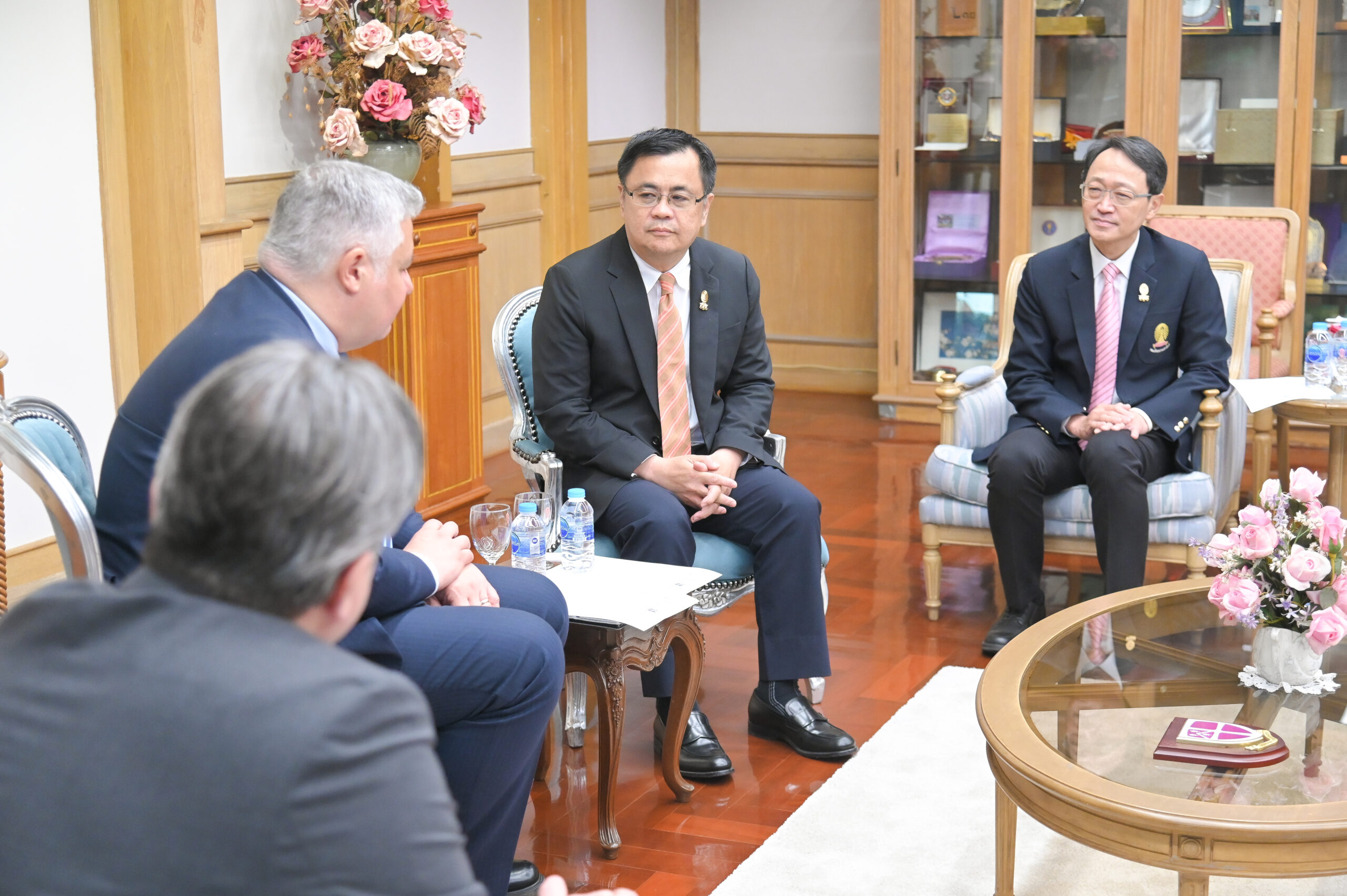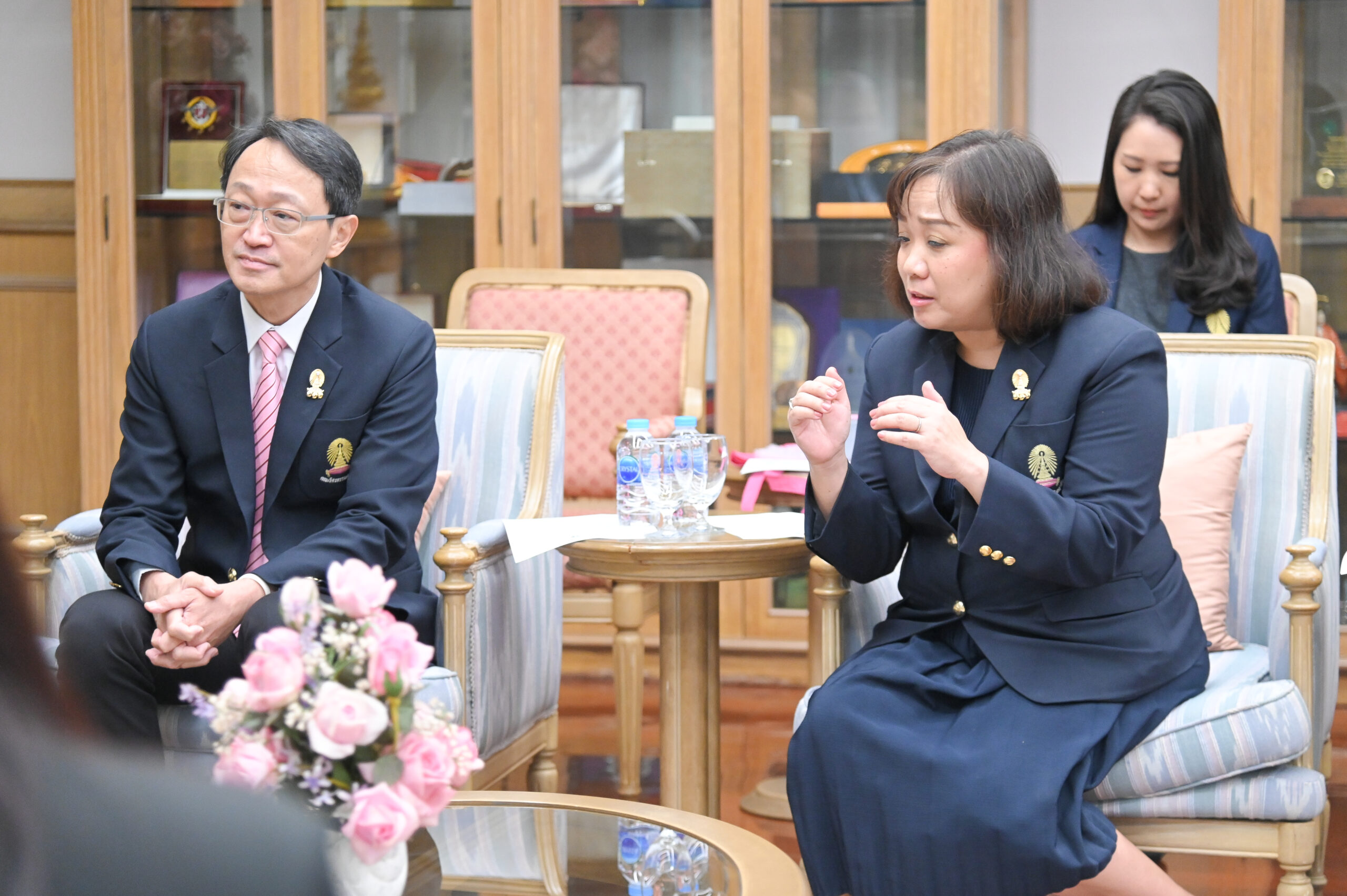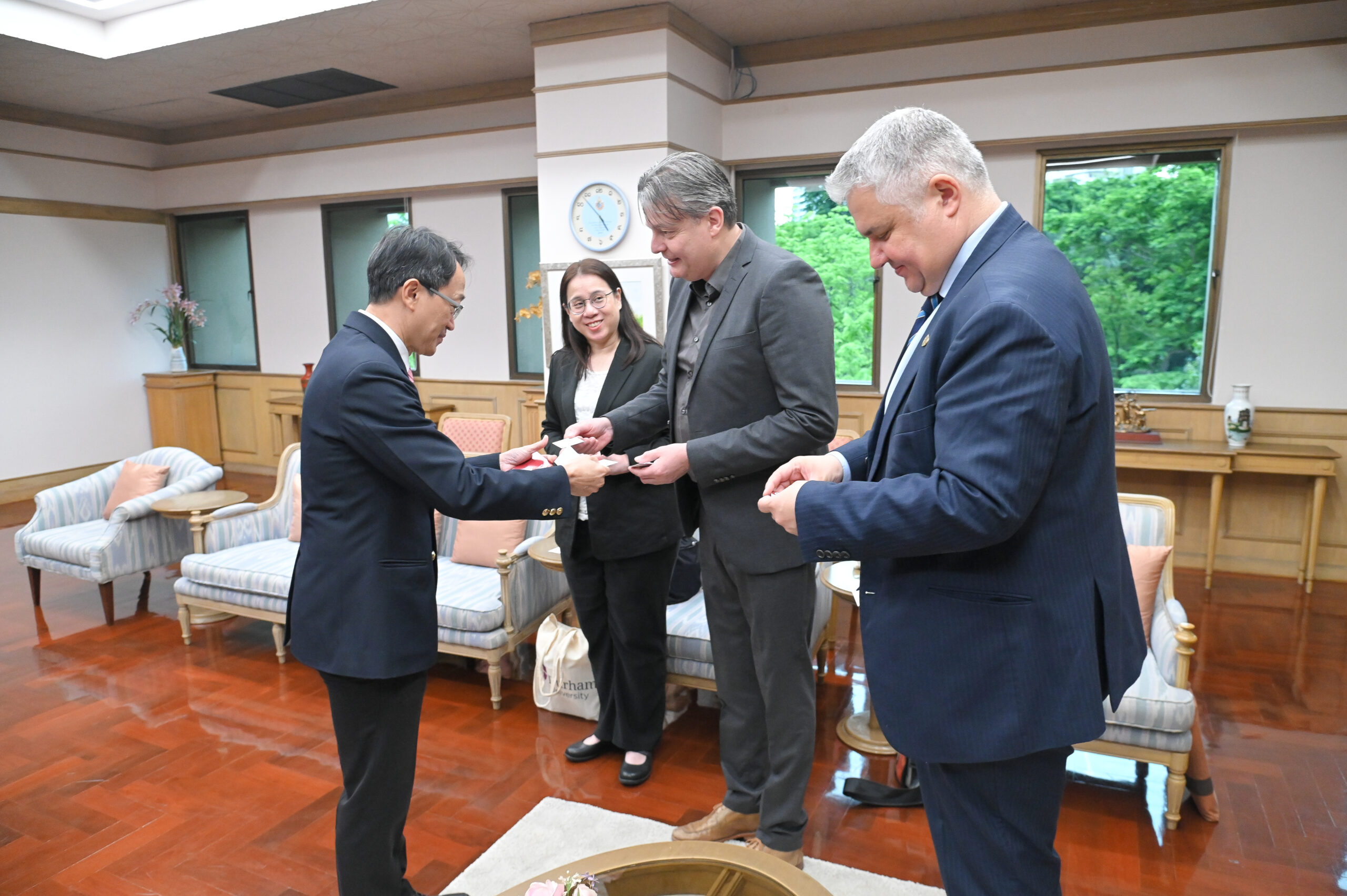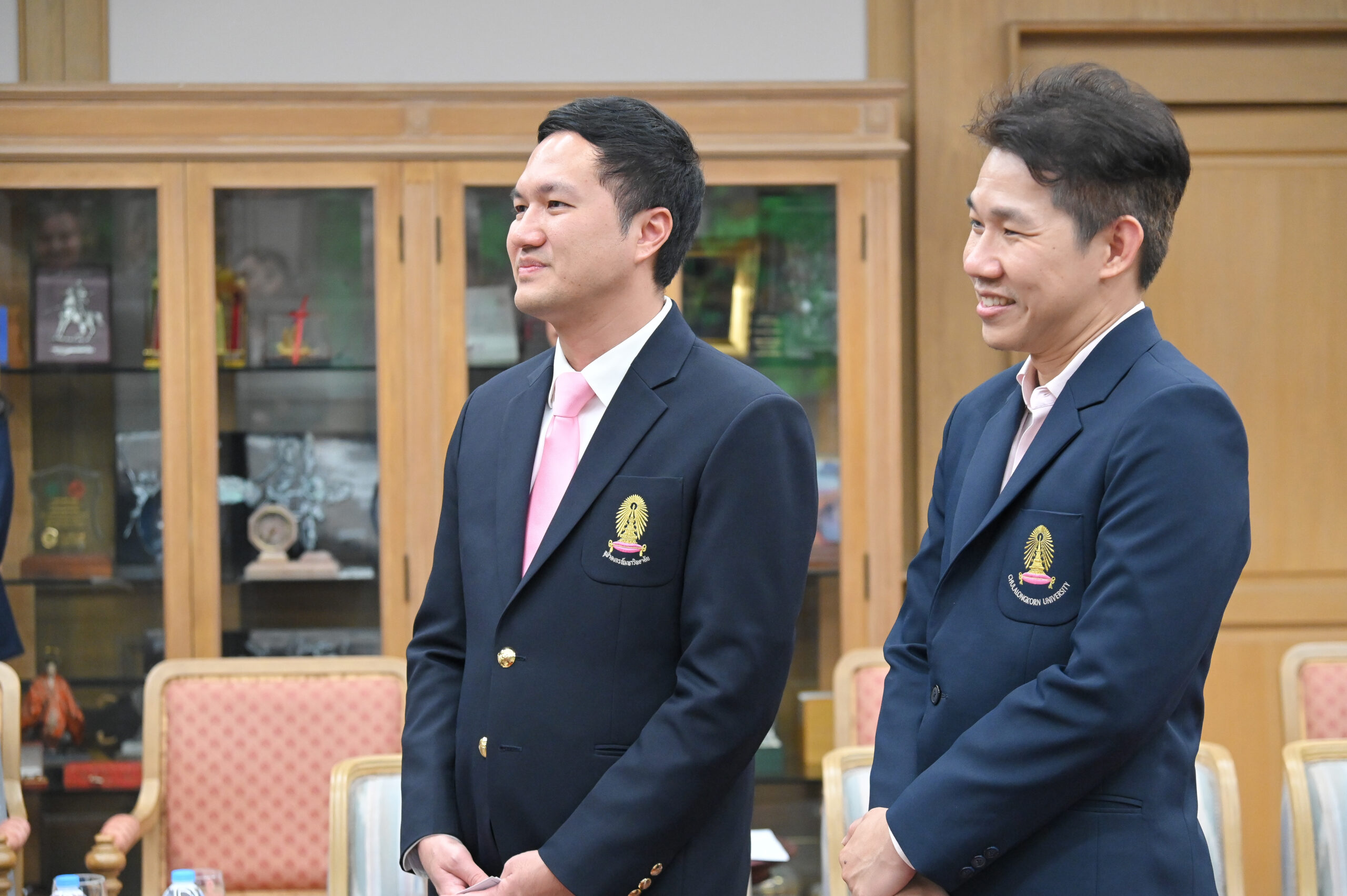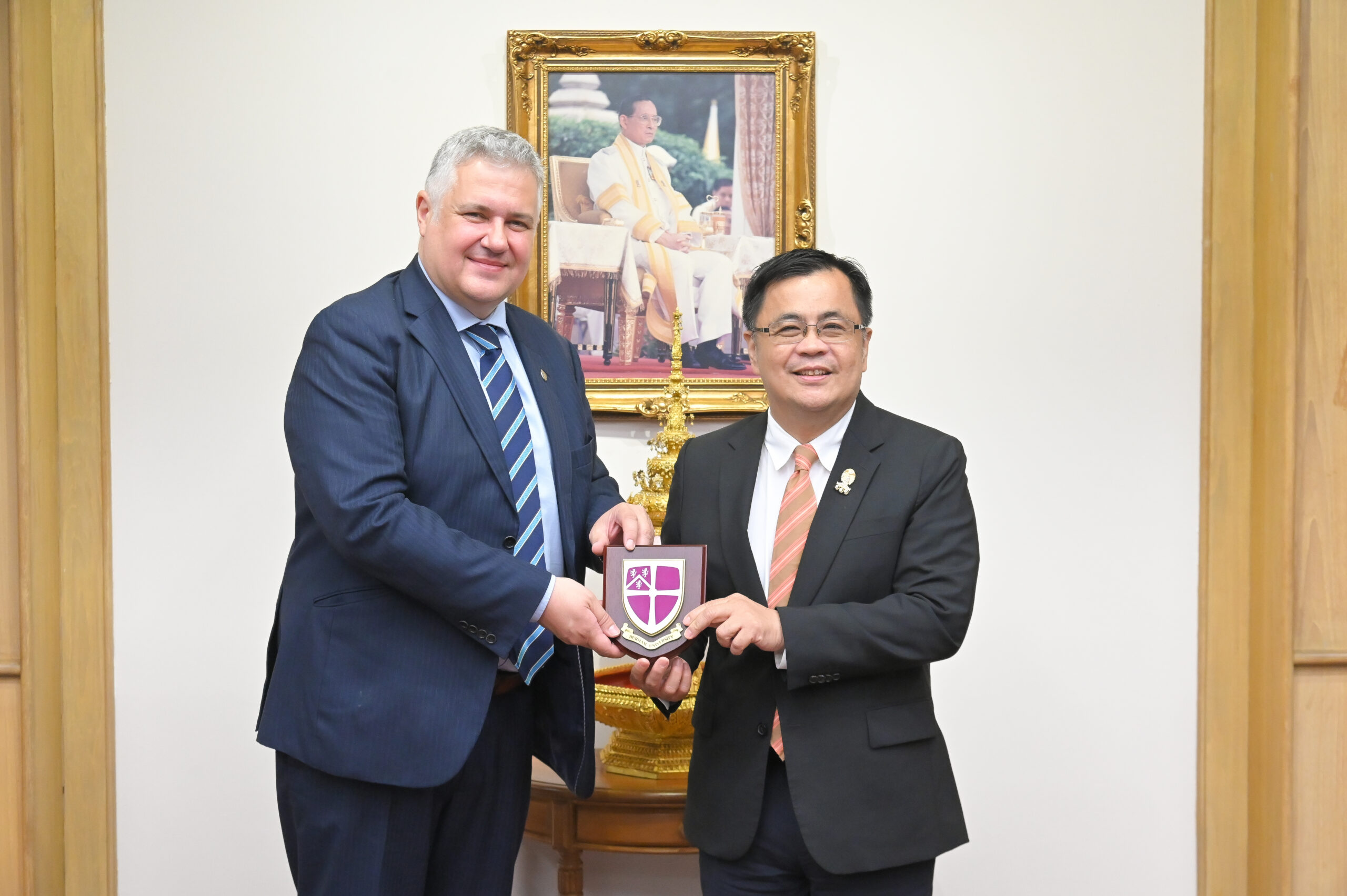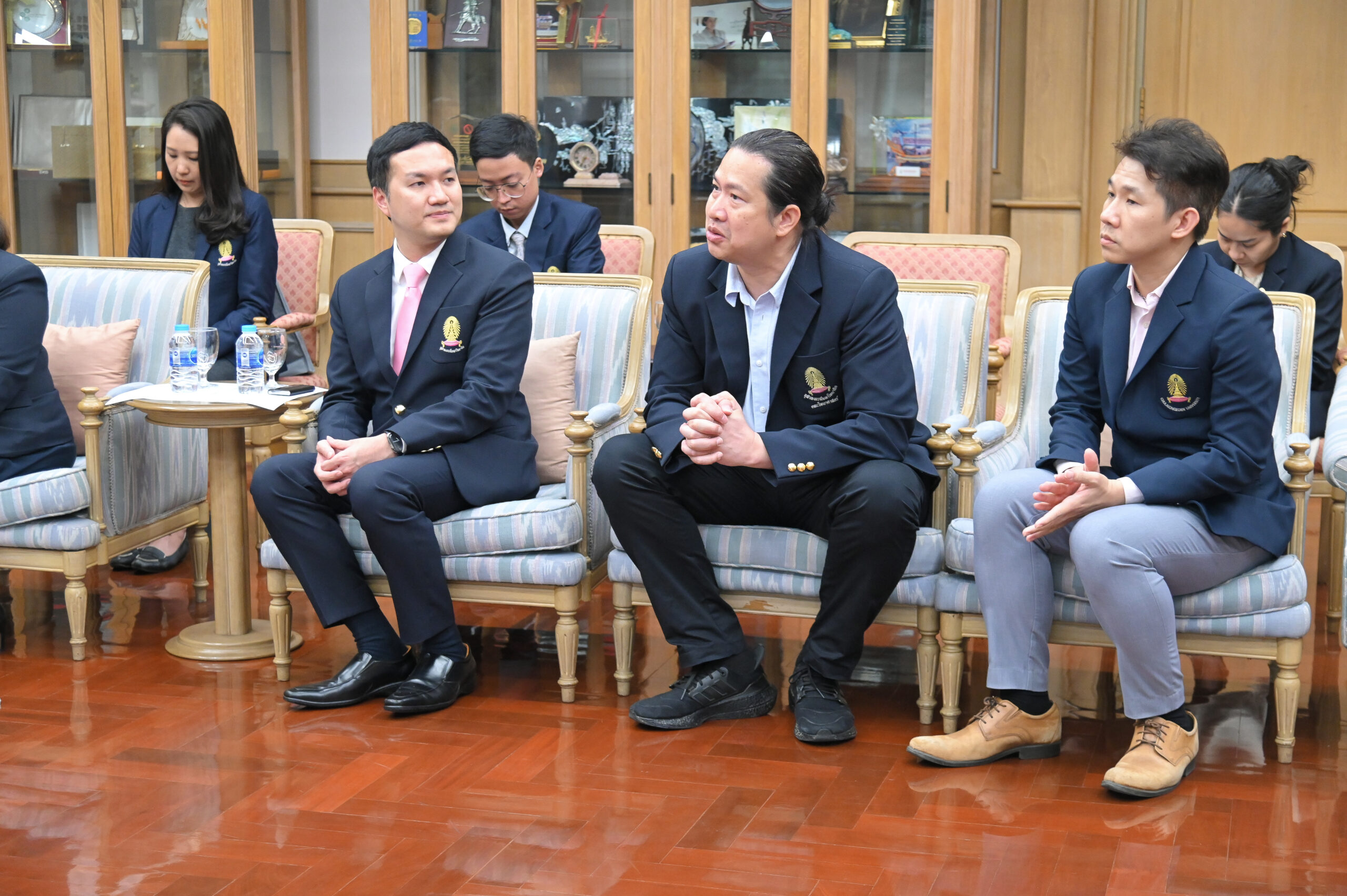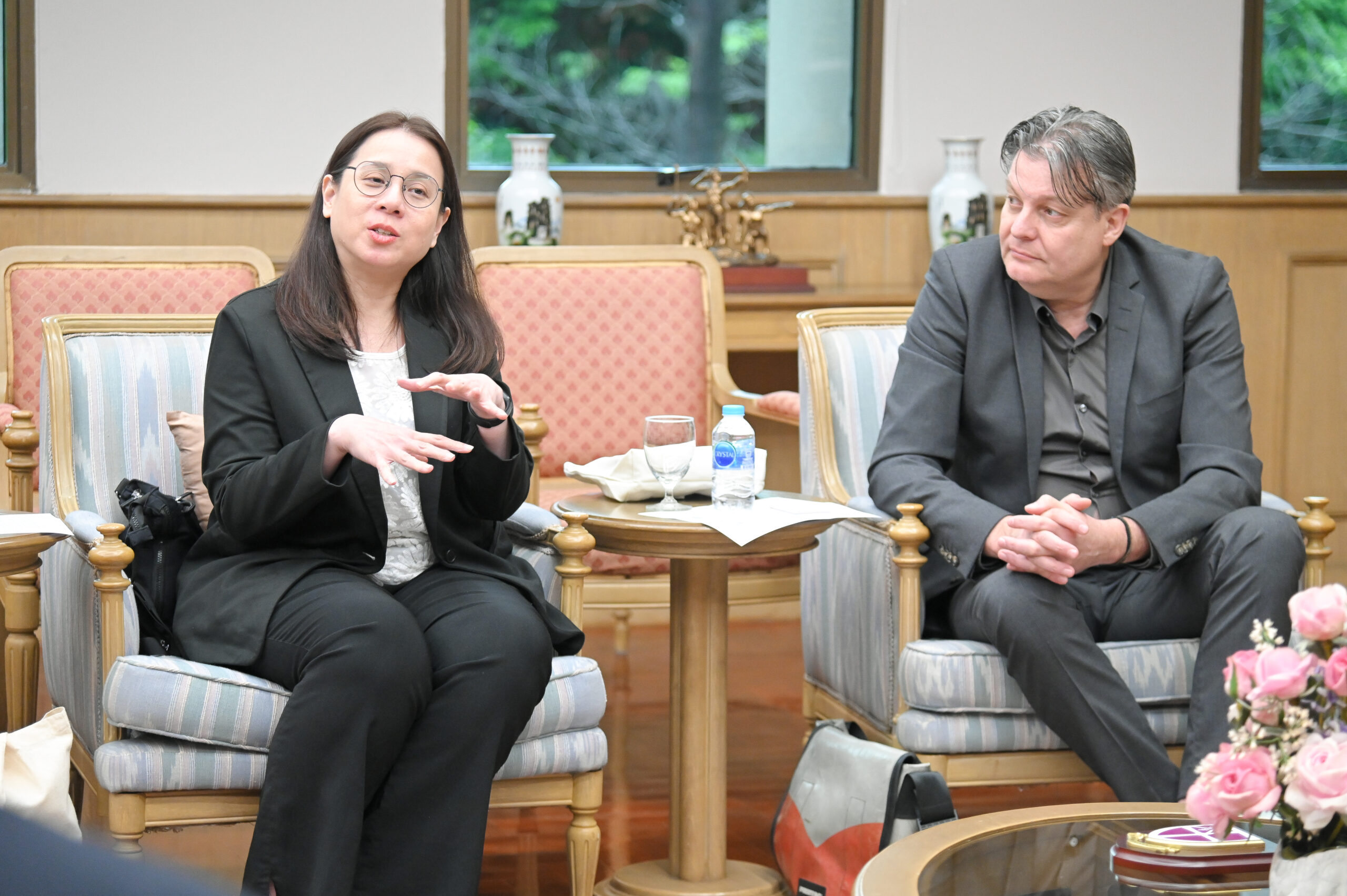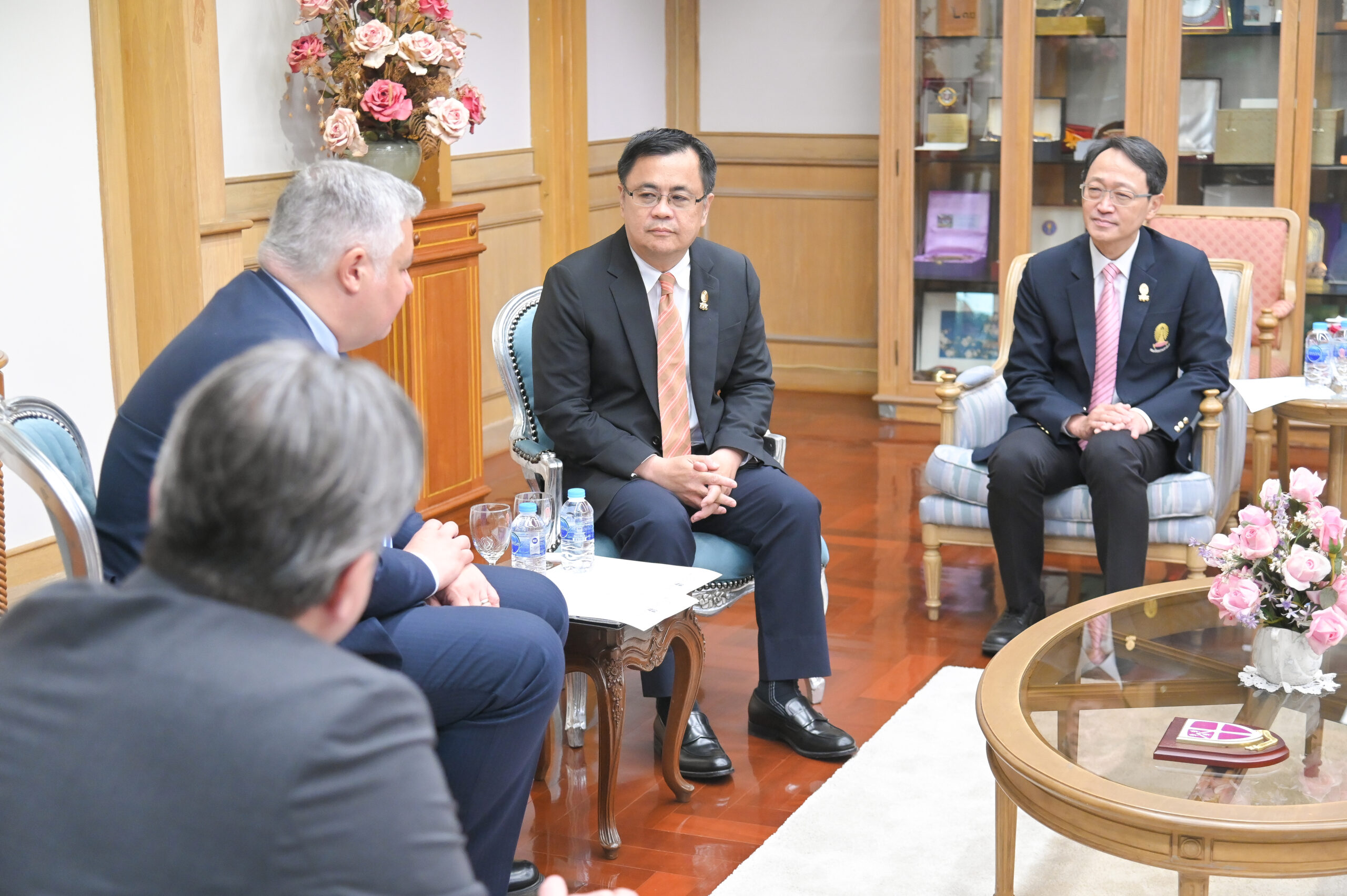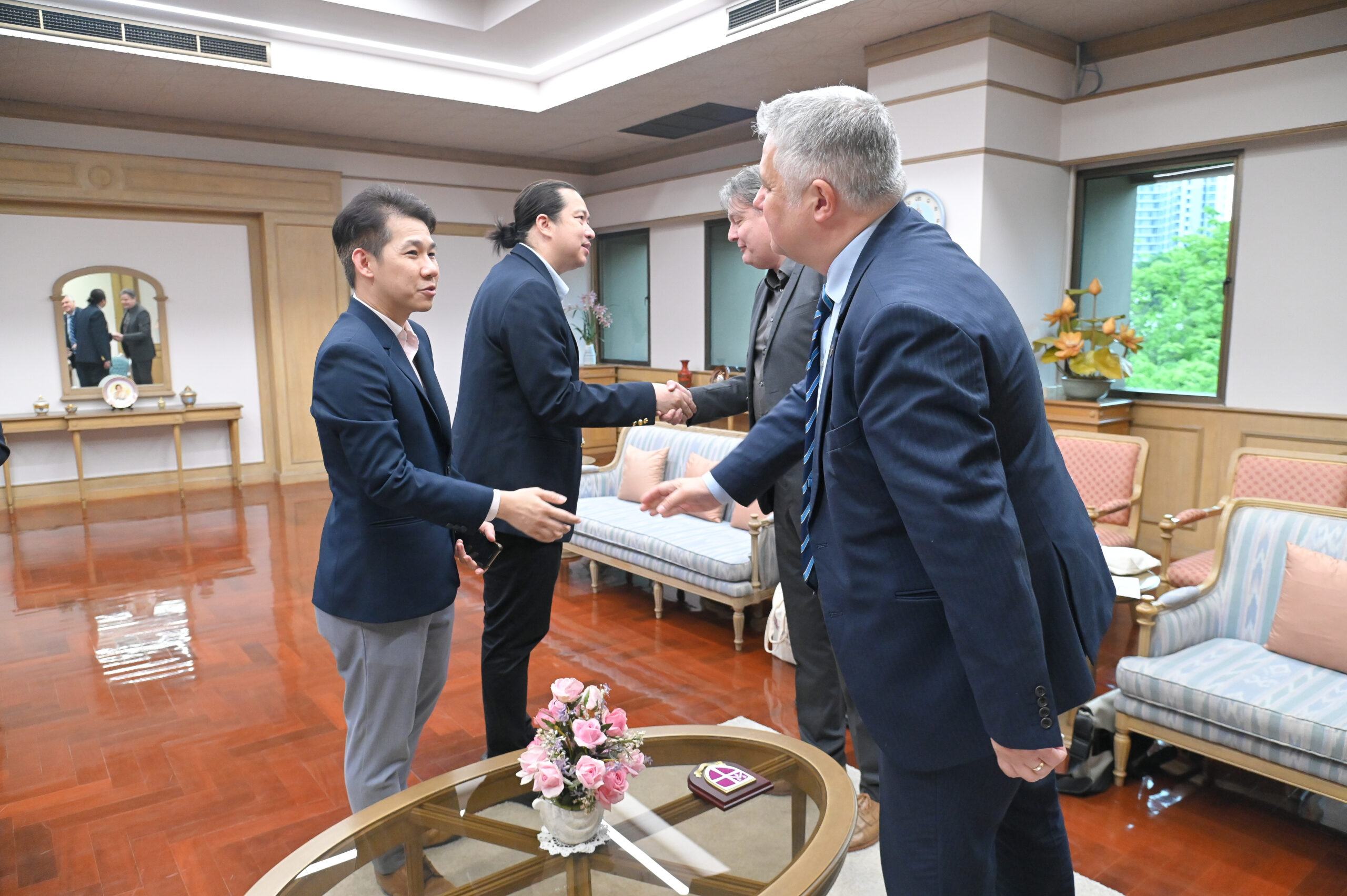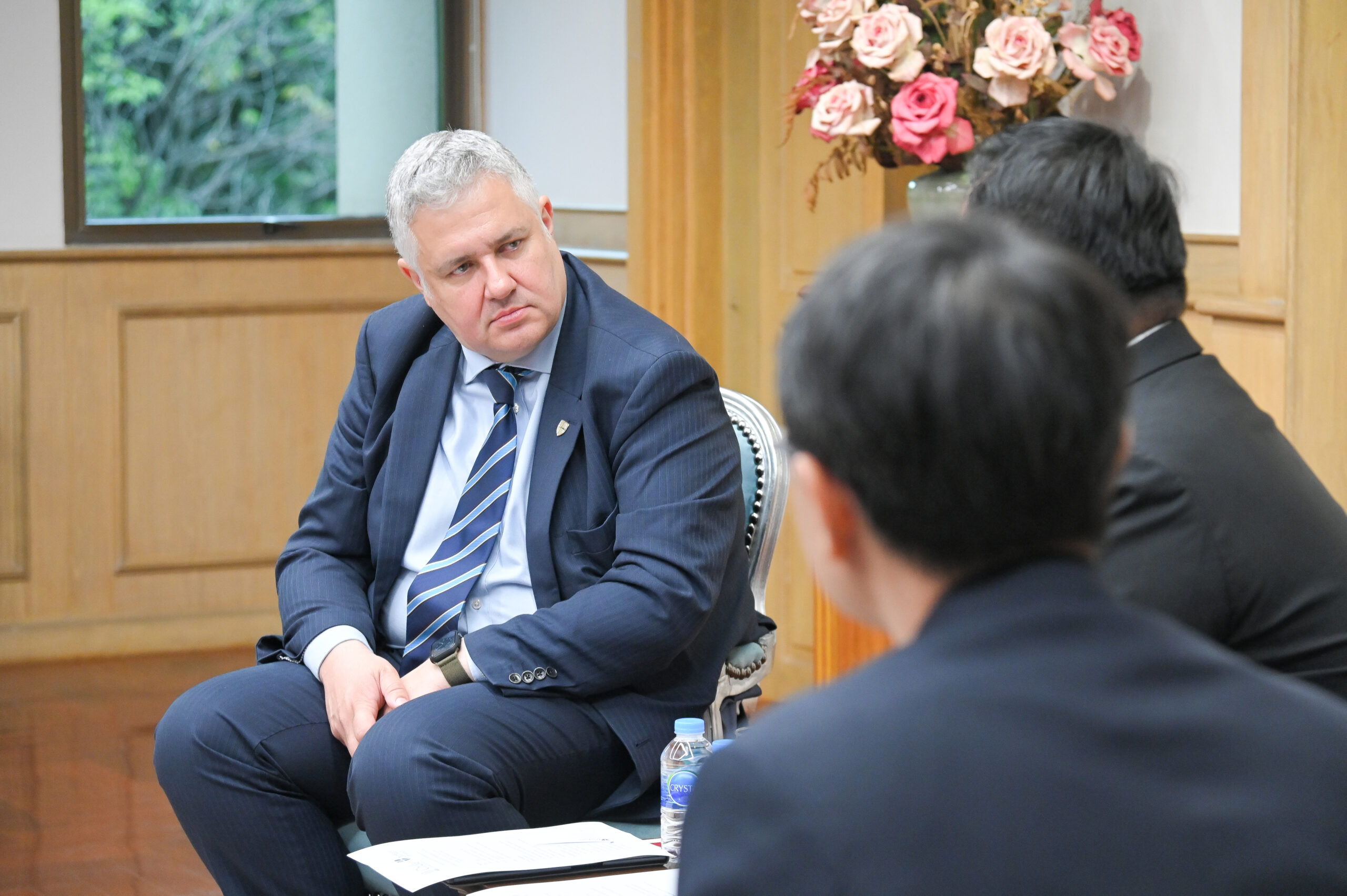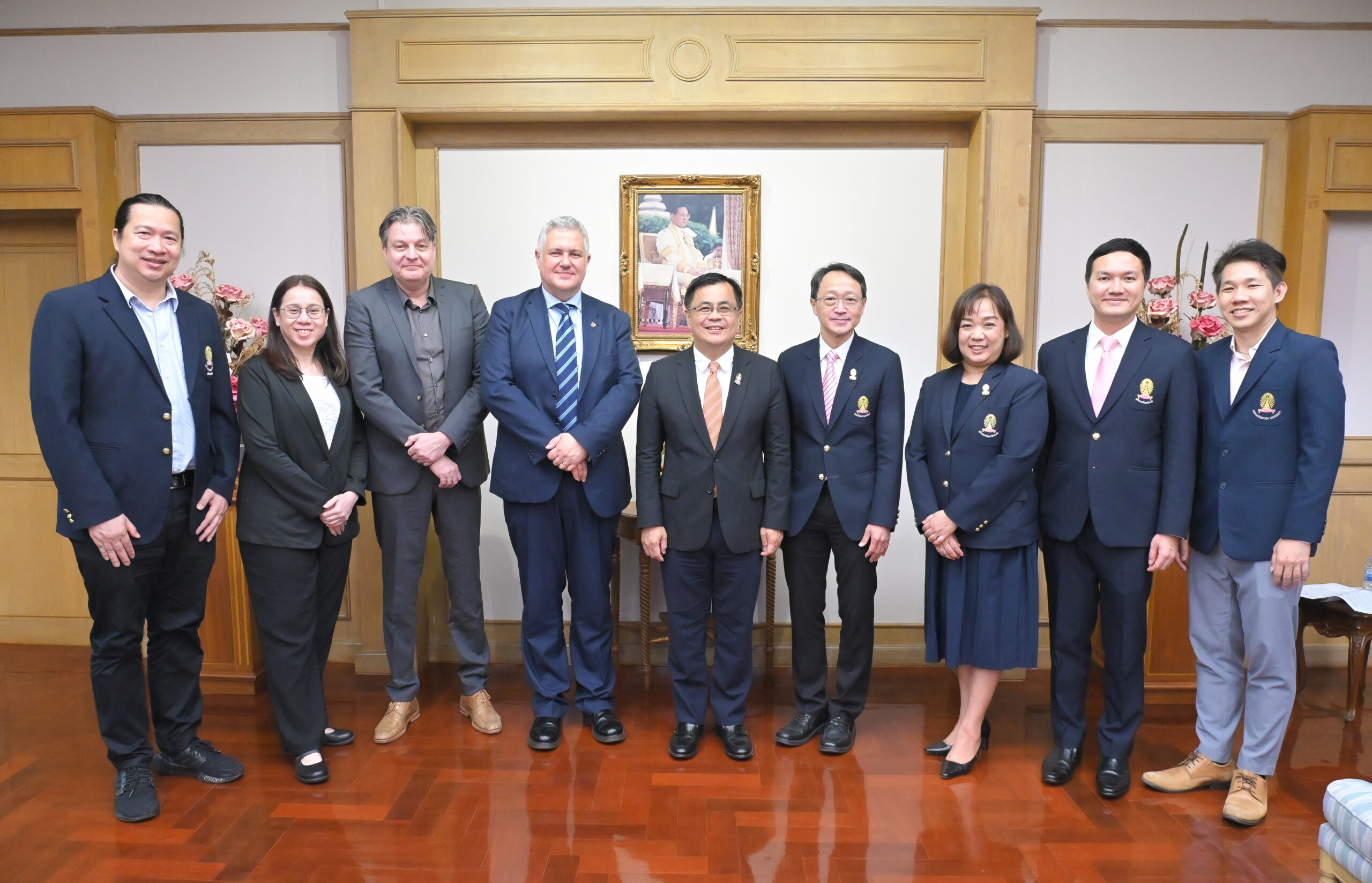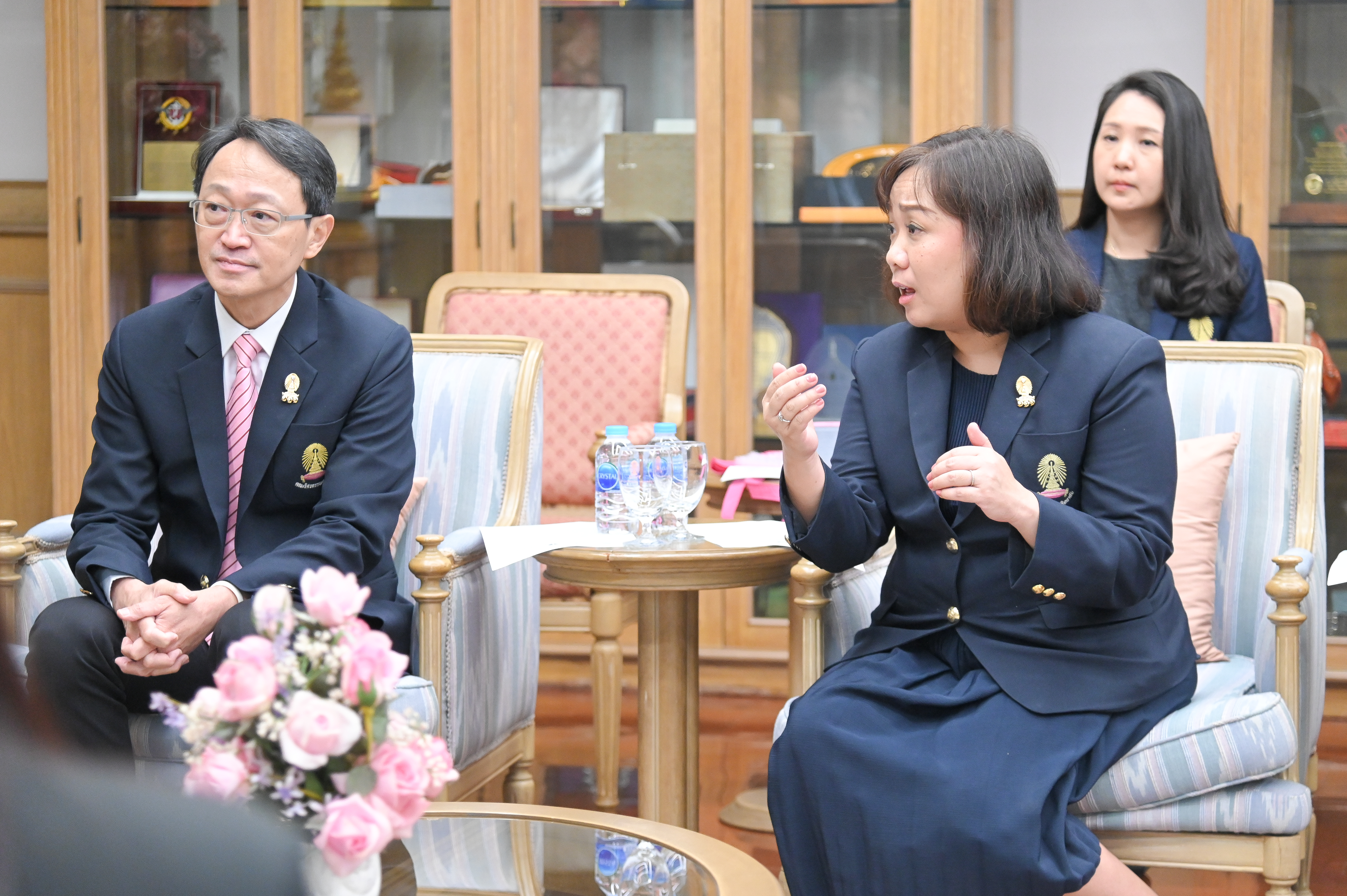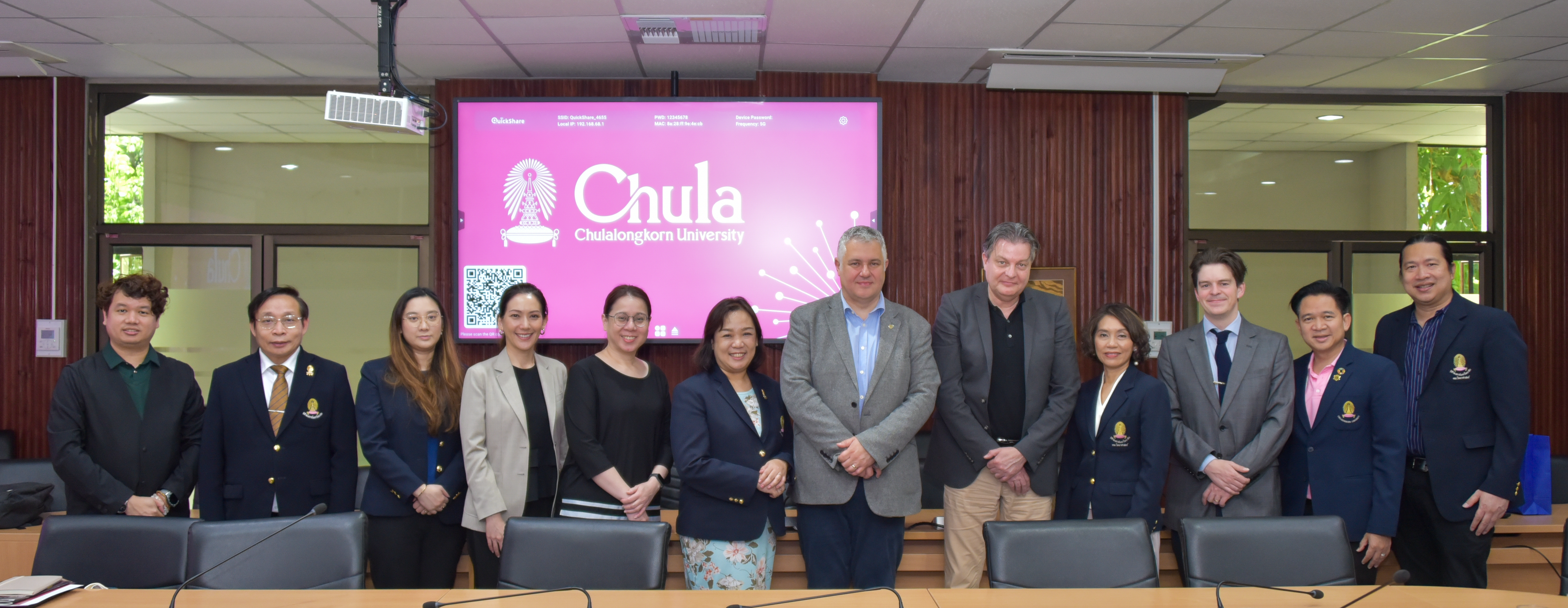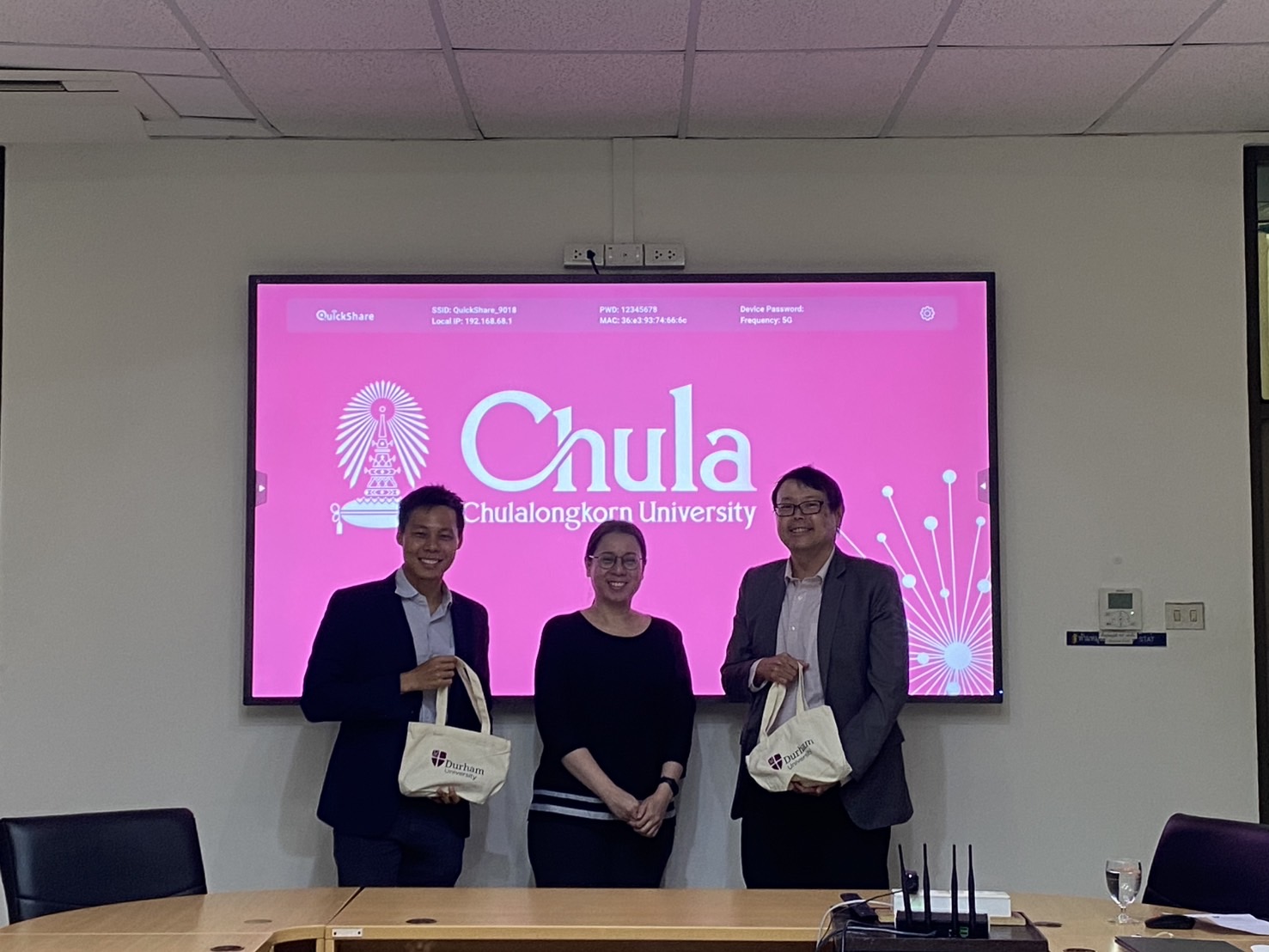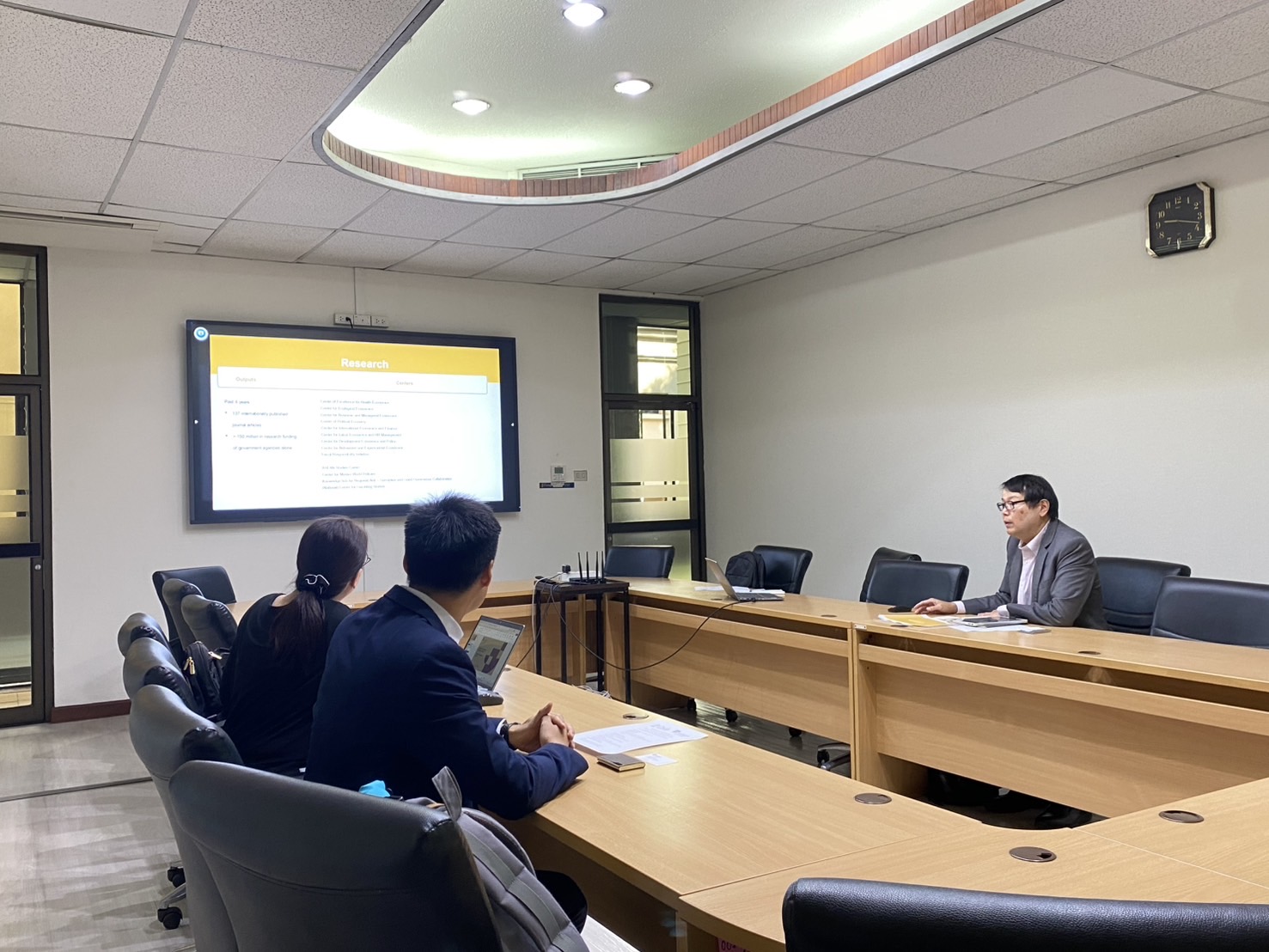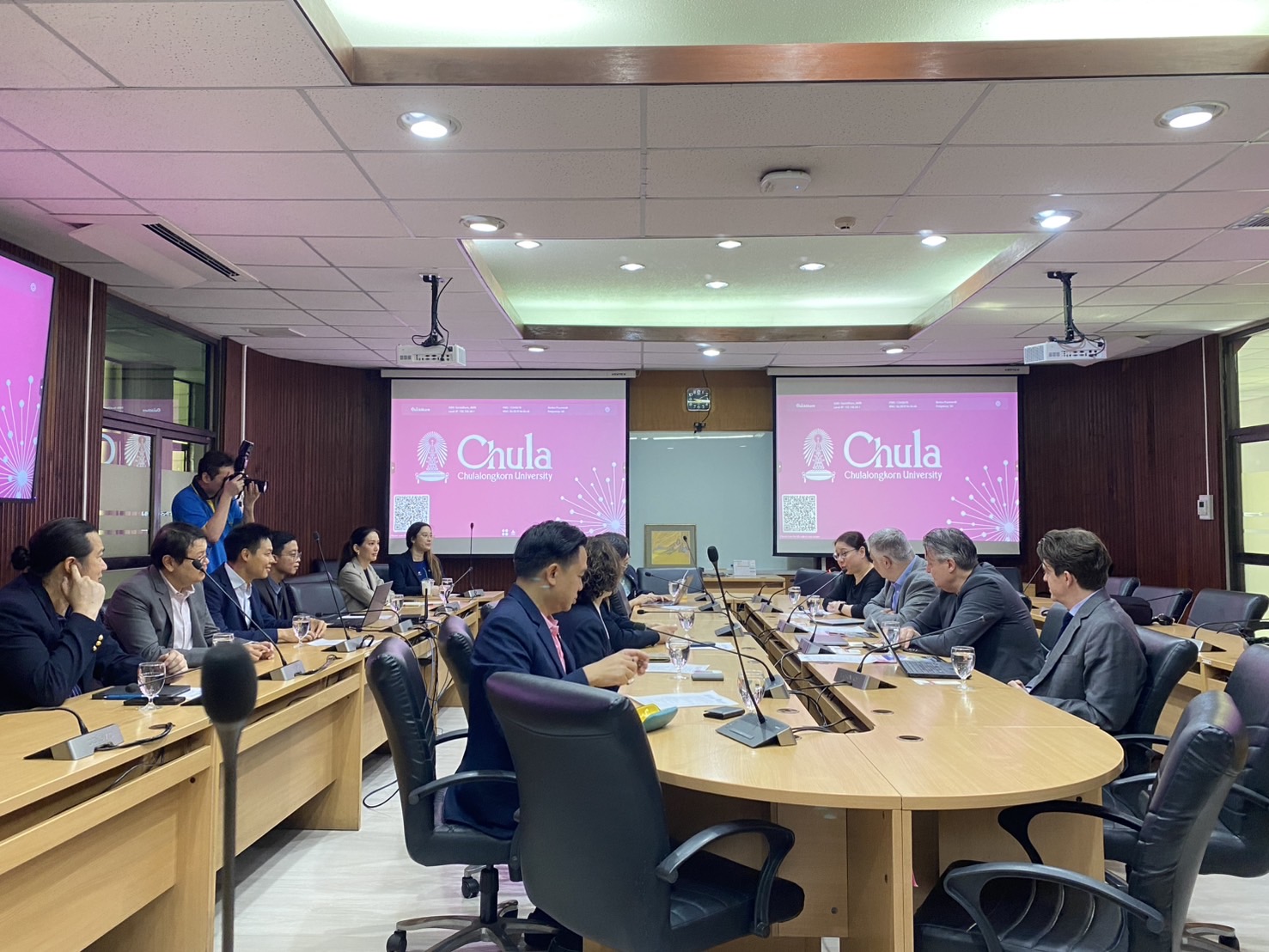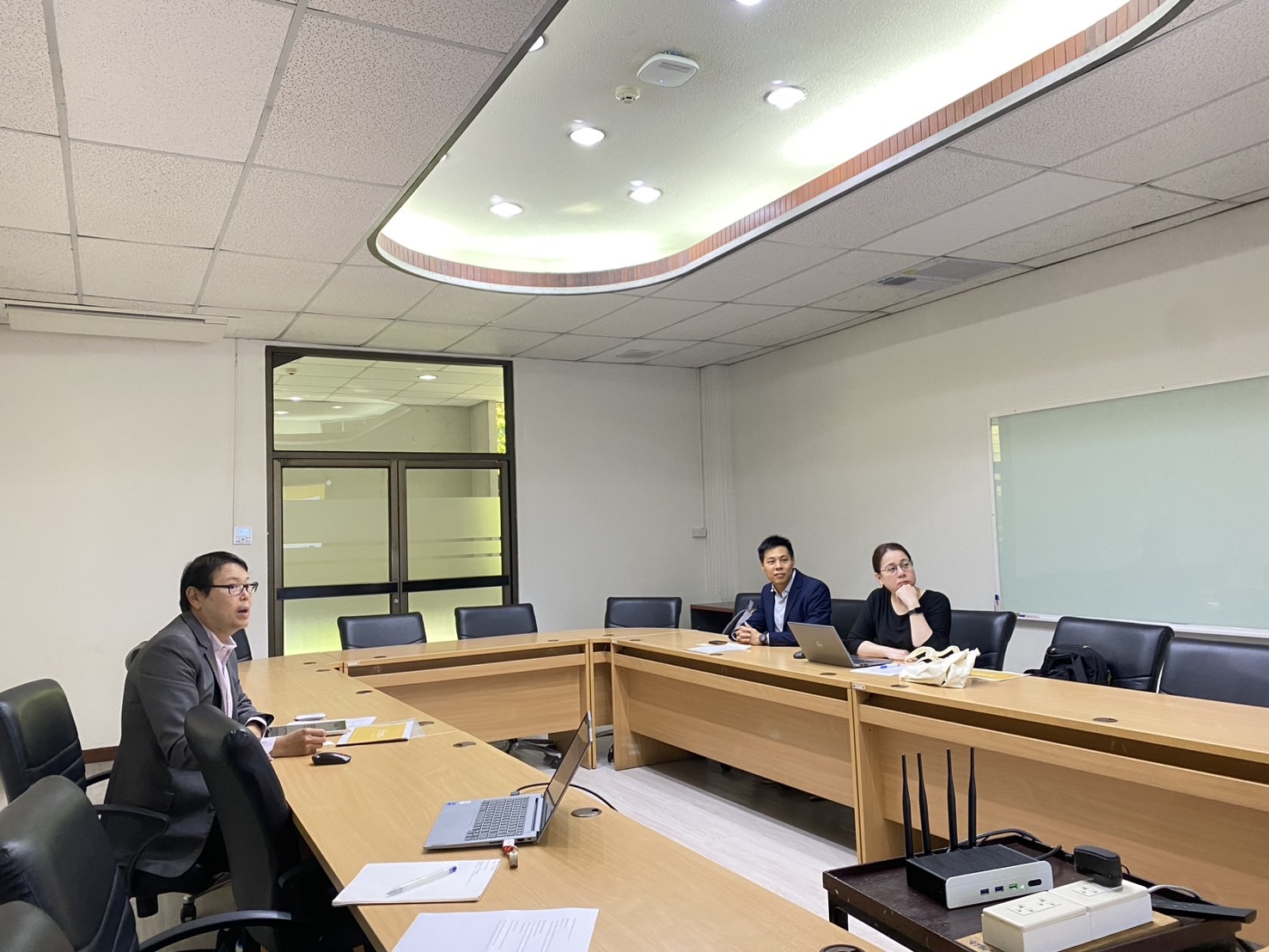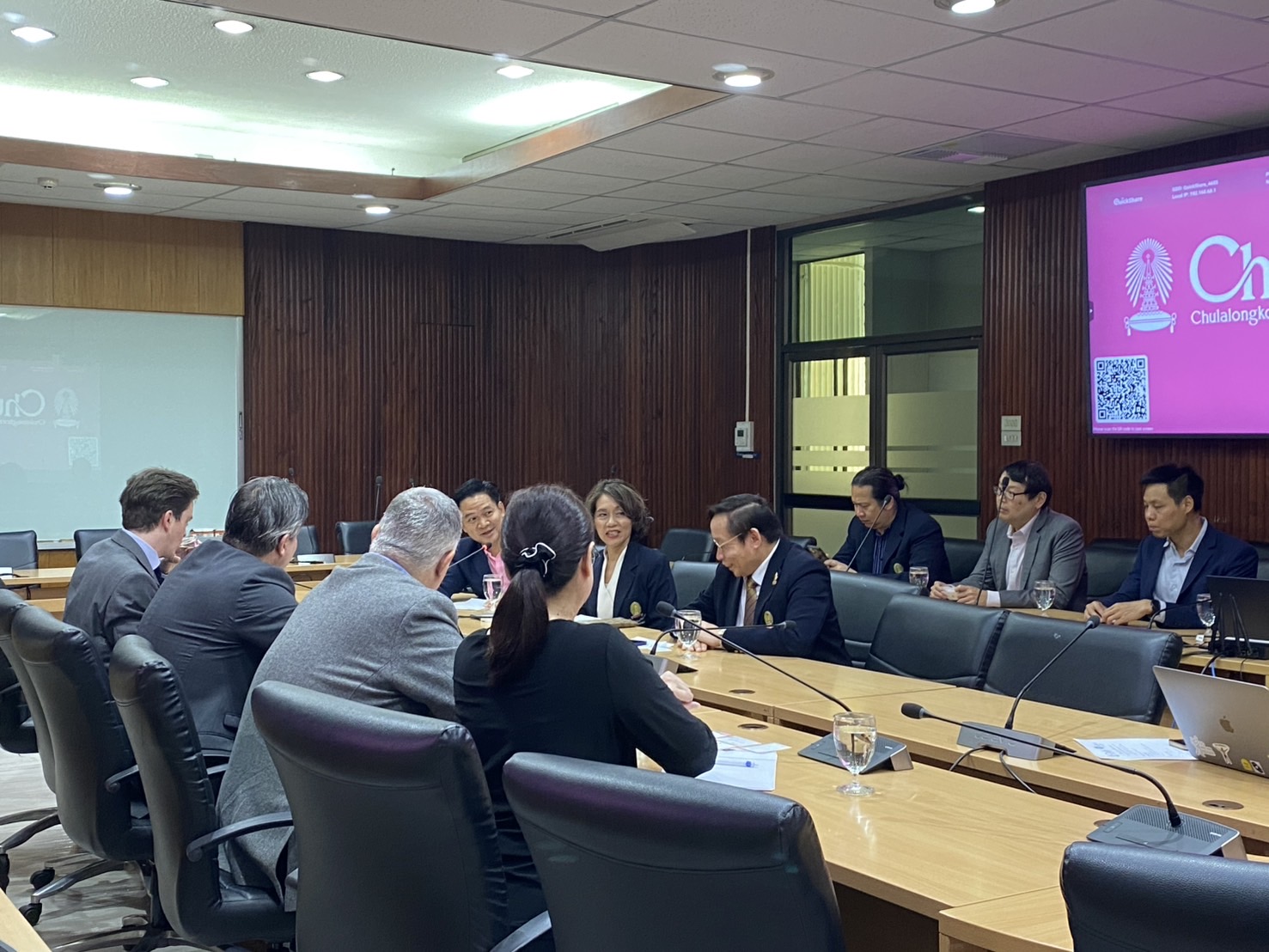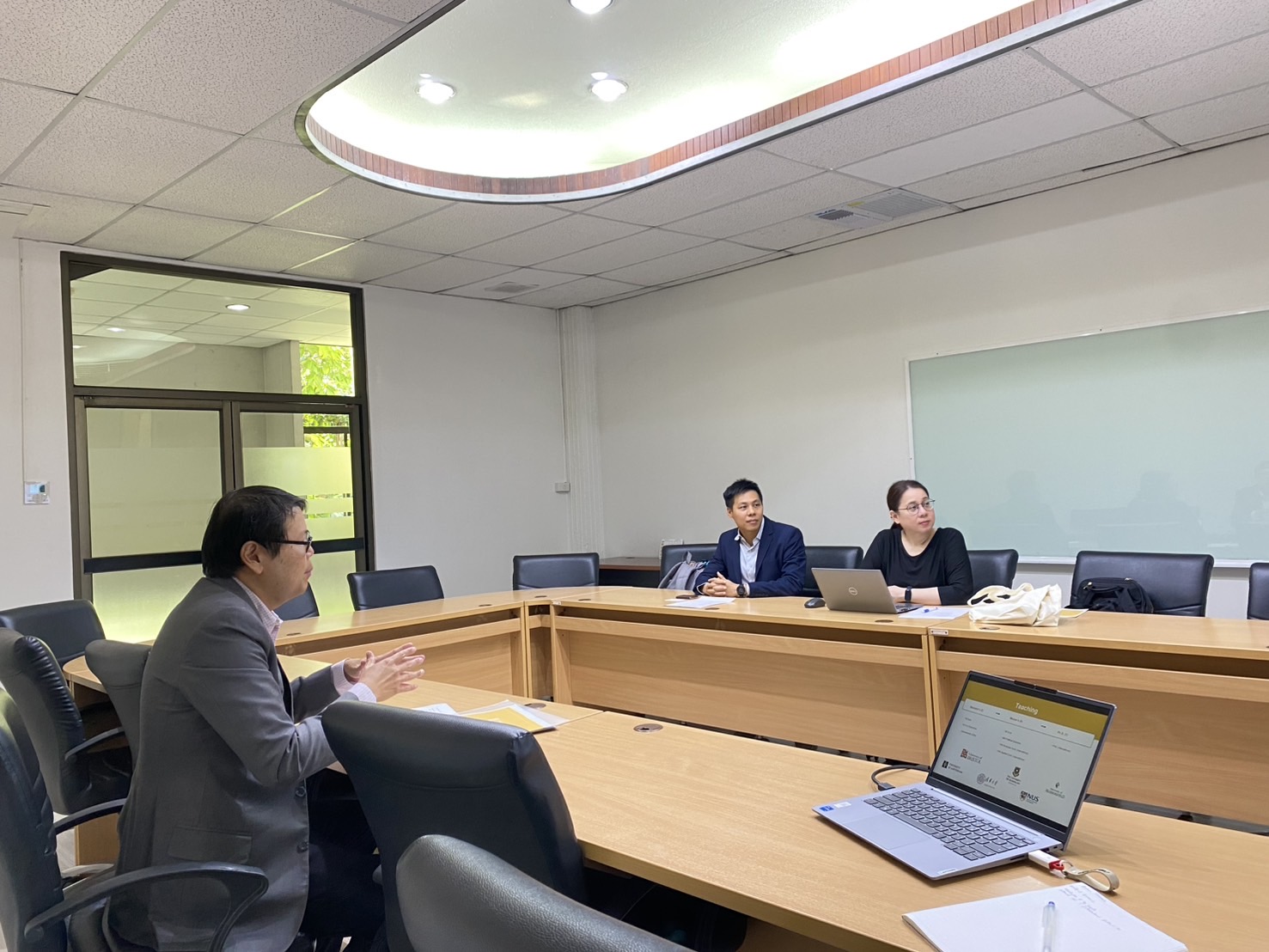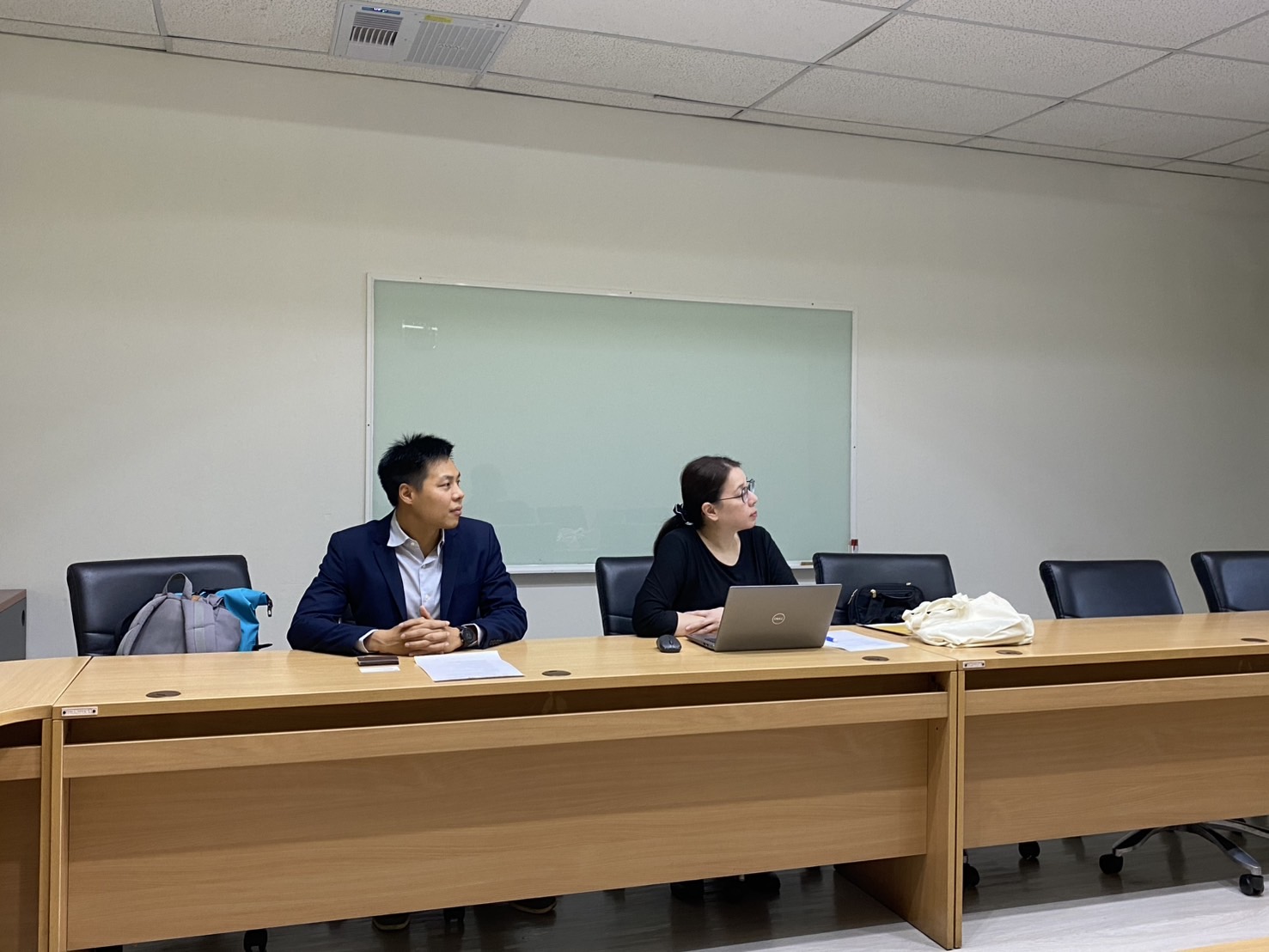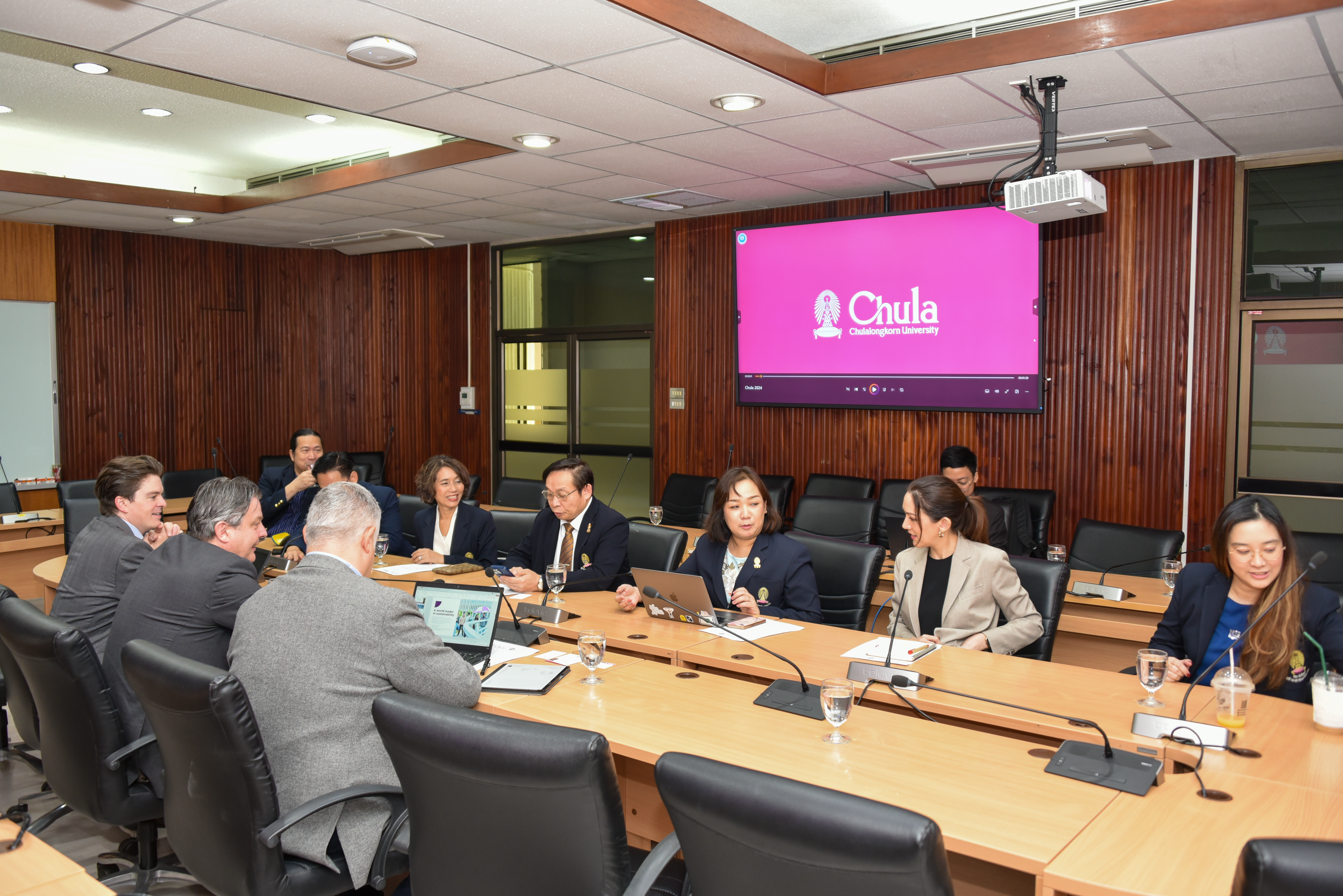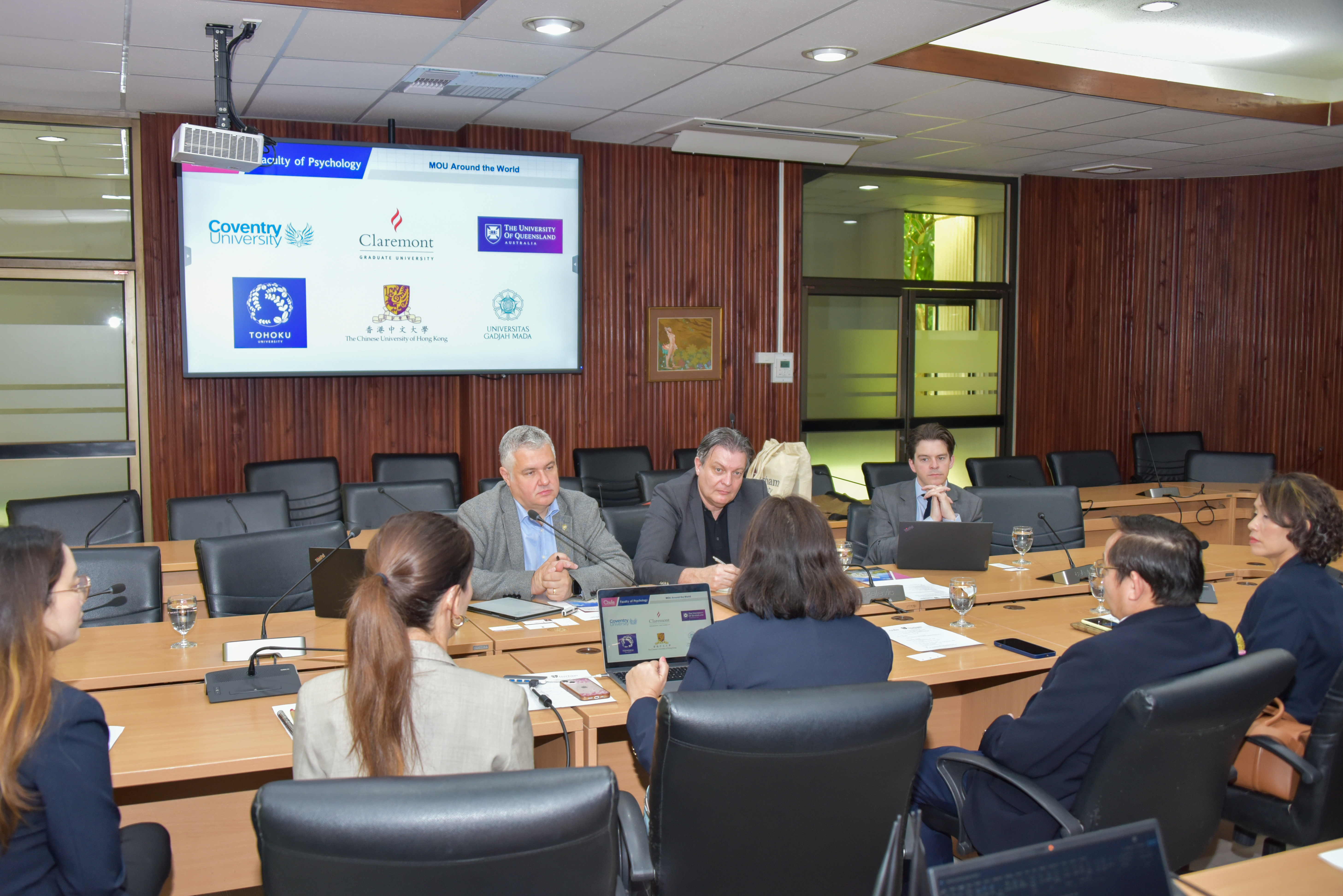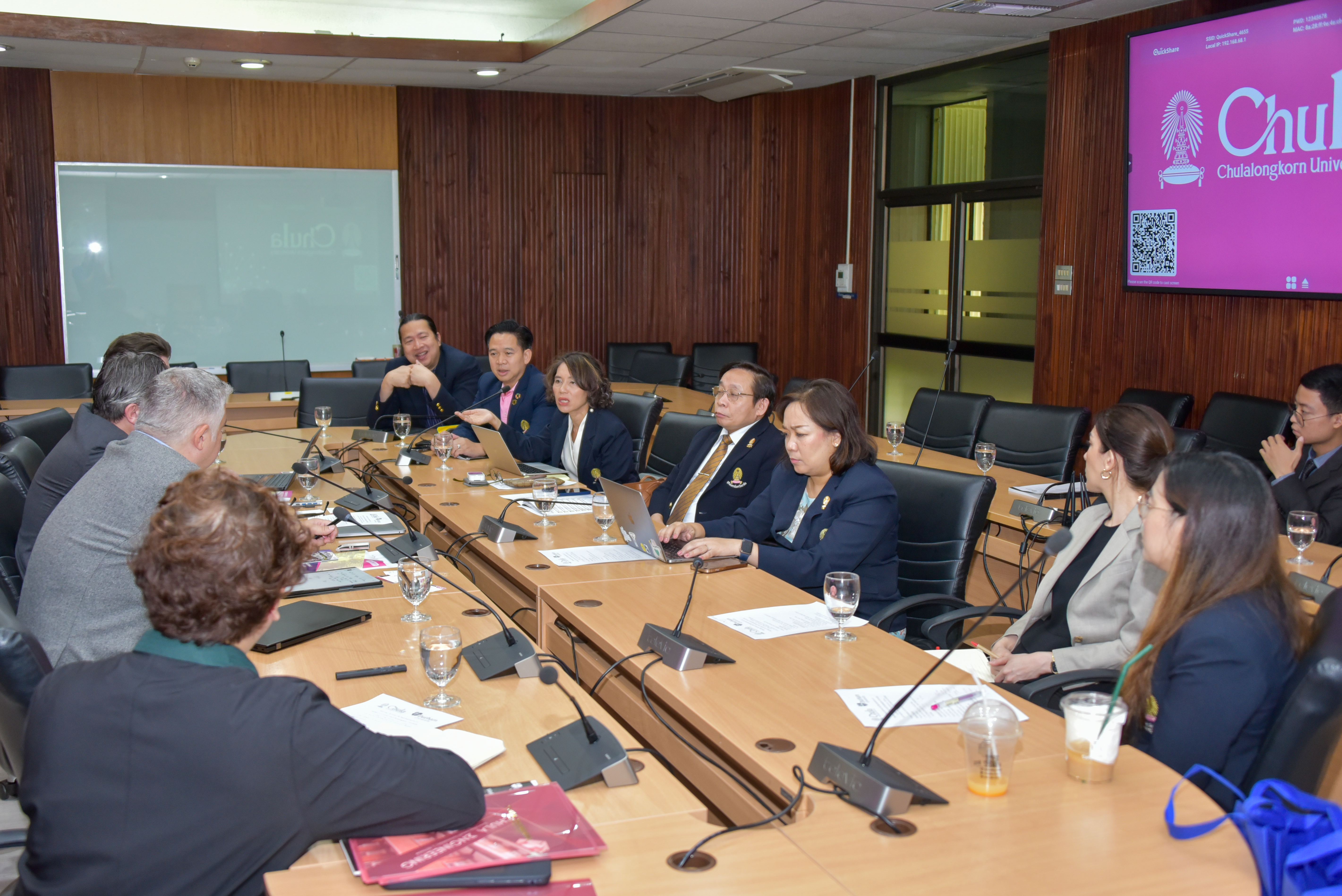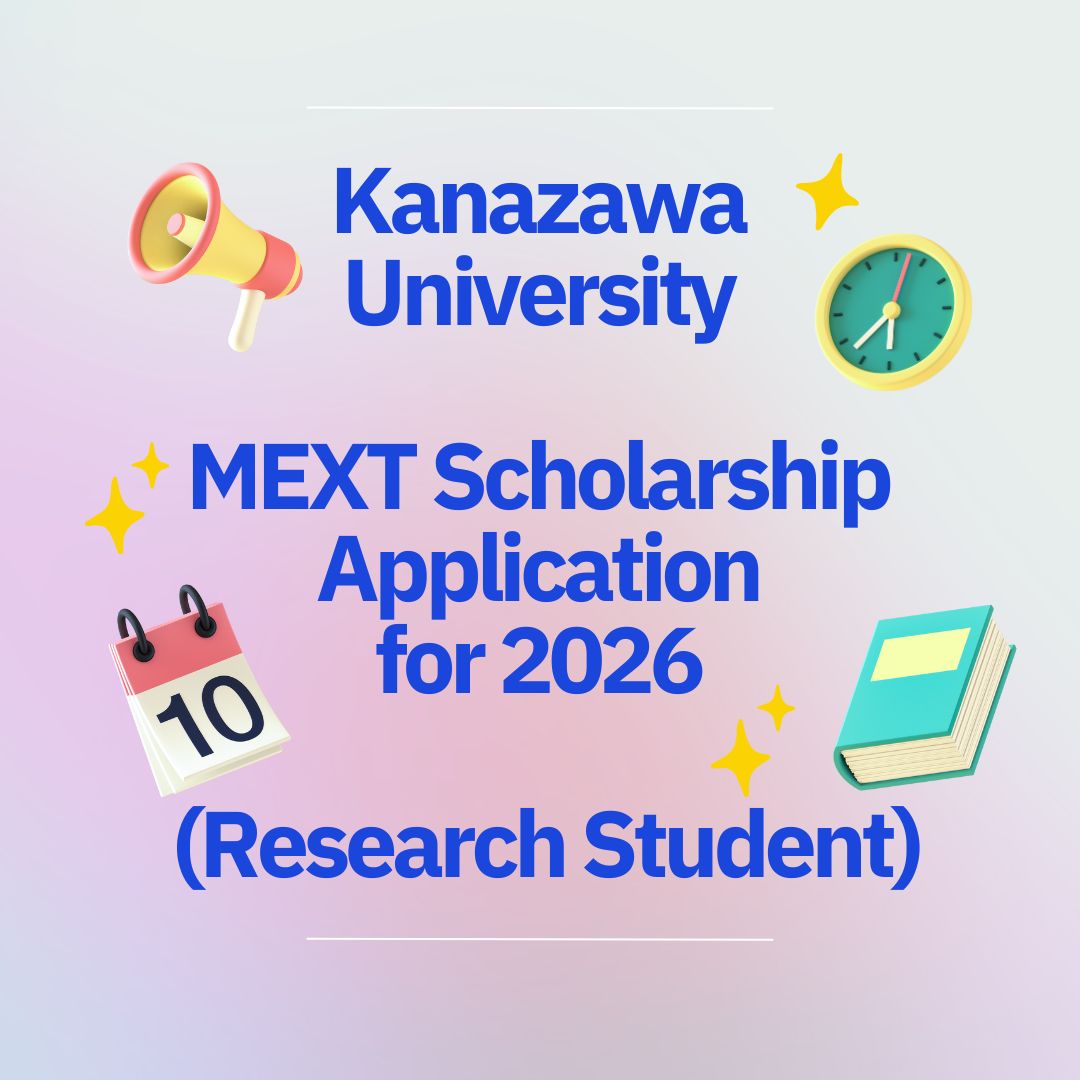Durham University and Chulalongkorn University Exploring Academic and Research Collaborations

On 20th May 2025, President Wilert Puriwat, along with Chulalongkorn University’s administrators and the representatives of the Faculty of Engineering, Faculty of Psychology, and Faculty of Science, welcomed a delegation from Durham University led by Prof. Clive Roberts, Ph.D., Executive Dean of the Faculty of Science.
The meeting explored several potential areas of collaboration, including: (1) promoting the exchange of students, faculty members, and researchers; (2) expanding academic and research partnerships across disciplines such as Railway Engineering, Business, Psychology, Physics, Behavioral Science, Music and Brain Response, Biology, and more; (3) increasing joint research initiatives—currently, Chulalongkorn and Durham have co-authored more than 300 research publications; (4) developing joint or double degree programs; and (5) connecting startups from both universities to encourage cooperation.
Following the initial meeting, breakout sessions were held on 23rd May 2025 in Meeting Room 205, Chamchuri 3 Building to discuss specific joint projects and activities in science- and business-related disciplines. The science-related group focused on academic and research collaboration in Science, led by the representatives of the Faculty of Science and those of Durham University. This group was also participated by the representatives of Chulalongkorn University’s Faculty of Allied Health Sciences, Faculty of Engineering, and the College of Public Health Sciences.
At the same time, another session on collaboration in the field of Business was held in Meeting Room 203, Chamchuri 3 Building, bringing together the representatives of Durham University Business School, the Chulalongkorn Business School, and the Faculty of Economics.
Two key outcomes could be concluded from the discussions. Firstly, both institutions expressed interest in jointly applying for research grants from the UK and Thai governments in the areas aligned with strategic research priorities. Secondly, they shared a strong commitment to establishing dual degree programs at both undergraduate and graduate levels.


